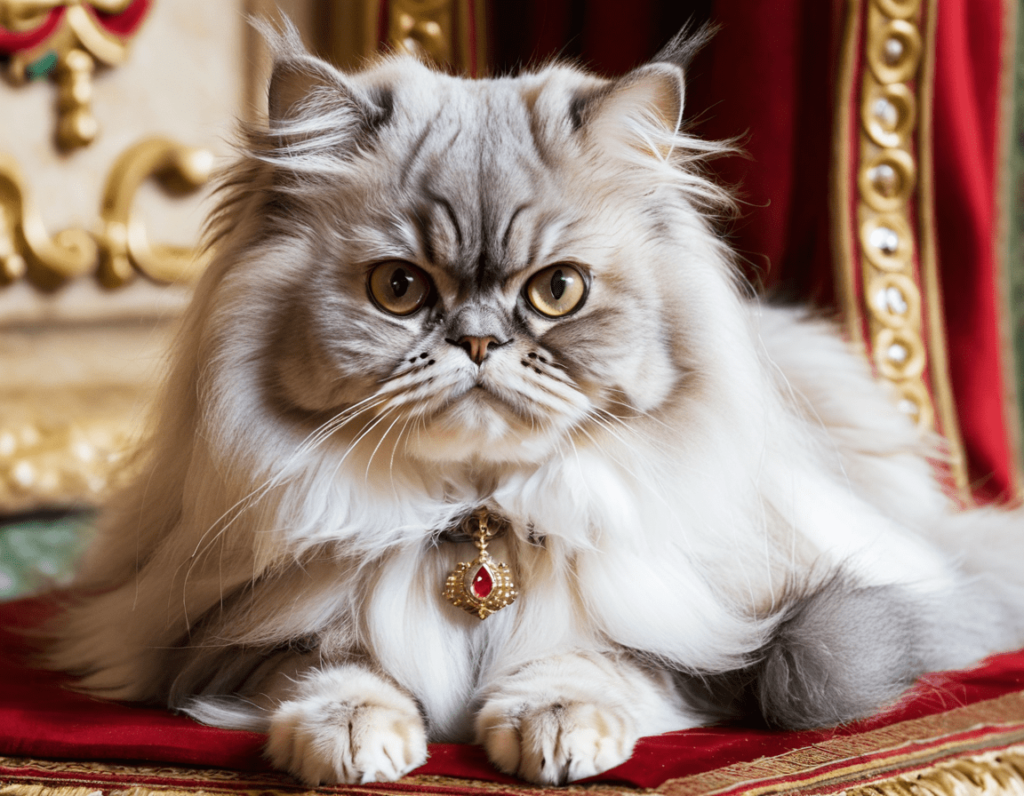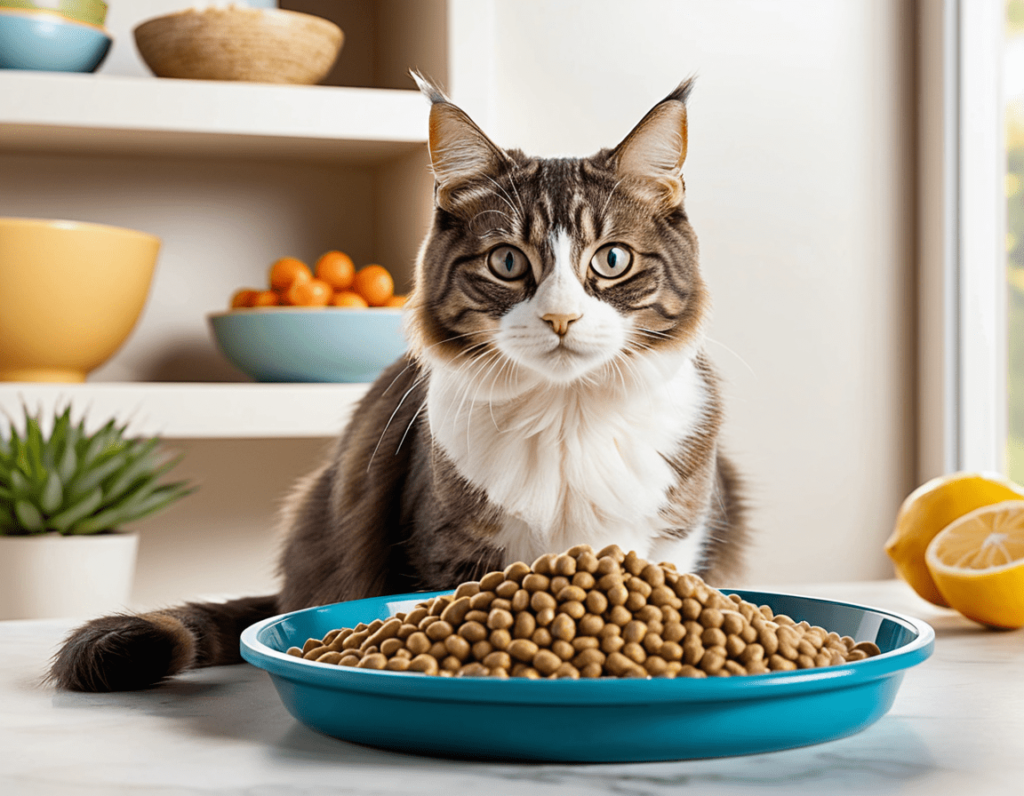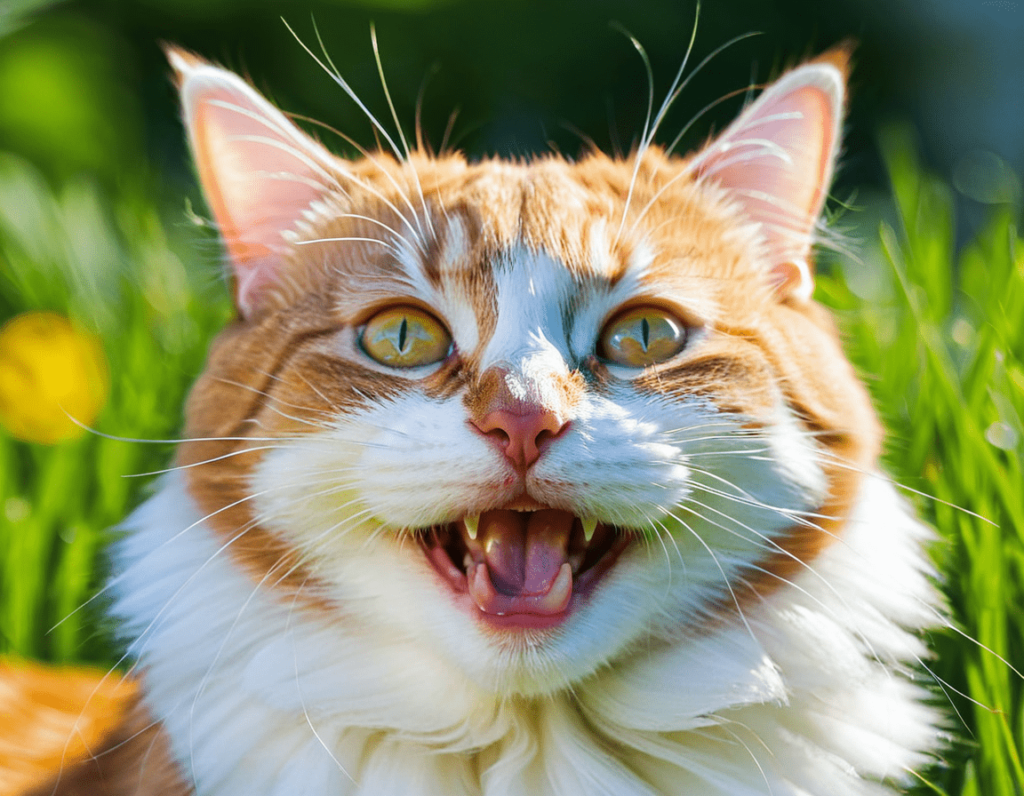
We all love a good cat smile, especially when it’s paired with that irresistible purr. But did you know that maintaining your cat’s dental health is just as important as keeping their paws in tip-top shape? If you’ve ever seen a cat awkwardly trying to clean its own teeth (spoiler alert: they can’t), you’ll understand why cat dental care is essential.
Cats are pros at hiding their discomfort, but dental problems can sneak up on them and lead to serious issues like tooth decay, gum disease, or even infections. Luckily, with a little attention and some kitty-friendly care, you can keep your cat’s teeth sparkling and their smile even more adorable.
Why is dental care important for cats?
First off, dental care isn’t just about having a pretty smile (though that’s a big plus!). Just like with humans, neglecting dental hygiene can lead to a bunch of serious health problems. Poor dental health can contribute to bad breath, gum infections, tooth loss, and even heart disease. Yes, you heard that right—an infected tooth could eventually affect your cat’s heart! Yikes, right?
Signs Your Cat Might Need a Dental Checkup
Cats are experts at hiding pain, so it’s not always obvious when something is wrong with their teeth. But there are a few signs to watch for that may indicate your feline friend needs a trip to the vet for a dental checkup:
- Bad breath: More than just “morning breath”—if your cat’s breath smells like rotten fish, it’s a red flag.
- Excessive drooling: Cats don’t normally drool like dogs, so if your cat is leaving puddles of saliva, it’s time to check their mouth.
- Difficulty eating or chewing: If your cat’s been avoiding dry food or eating slower than usual, their teeth might be bothering them.
- Red or swollen gums: Gums should be pink, not red or inflamed.
- Discolored teeth: Yellow or brown stains are not part of a healthy smile.
How to Take Care of Your Cat’s Teeth
Now that you know why dental care is so important, let’s talk about how to keep those pearly whites in check. Thankfully, it’s not as hard as you might think—though it might require a bit of patience (and maybe some cat treats to bribe your kitty into cooperating).
1. Brush your Cat’s Teeth
Brushing your cat’s teeth sounds like a mission impossible, but with the right tools and a little training, it can become a regular part of your cat’s routine. Start by using a cat toothbrush (they’re smaller and gentler than human ones) and cat-friendly toothpaste. Never use human toothpaste, as it can upset your cat’s stomach.
Try to get your cat used to brushing slowly. At first, just rub their gums with your finger, then gradually introduce the toothbrush. If your cat tolerates it, great! If not, don’t stress. Some cats may never fully accept tooth brushing, and that’s okay. There are other ways to keep their teeth clean.
2. Offer Dental-Friendly Treats
Who doesn’t love a tasty treat? There are plenty of dental chews and treats available that can help keep your cat’s teeth clean. These treats are designed to reduce plaque and tartar buildup as your cat chews. Just be sure to choose treats that are specifically designed for dental health—regular treats can sometimes contribute to plaque buildup if fed too often.
3. Provide Dental Toys
If your cat is more of a “play first, snack later” type, you can try dental toys. These toys are made to help clean your cat’s teeth while they bat them around (because every cat secretly wants to be a boxer, right?). Look for toys with different textures that will help remove plaque and massage the gums as they chew.
4. Regular Vet Checkups
Even with at-home care, regular checkups are crucial. A vet can perform a professional dental cleaning, which involves scaling your cat’s teeth to remove plaque and tartar buildup that can’t be addressed by brushing alone. Professional cleanings are typically done under anaesthesia to ensure your cat stays safe and relaxed during the process.
5. Healthy Diet
A balanced diet also plays a role in keeping your cat’s teeth healthy. Dry food can help reduce plaque buildup, though it shouldn’t be the only thing your cat eats. You can also try wet food that’s formulated for dental health.
Common Dental Problems in Cats
Despite your best efforts, your cat may still experience some dental problems. Here are a few common ones to watch out for:
- Periodontal disease: The most common dental issue in cats. It’s caused by the buildup of plaque and tartar, leading to gum inflammation and even tooth loss if left untreated.
- Tooth resorption: This painful condition occurs when your cat’s teeth begin to break down. It’s common in cats, especially as they get older, and often requires dental extractions.
- Oral tumors: Though rare, tumors can develop in your cat’s mouth and may require surgery to remove.
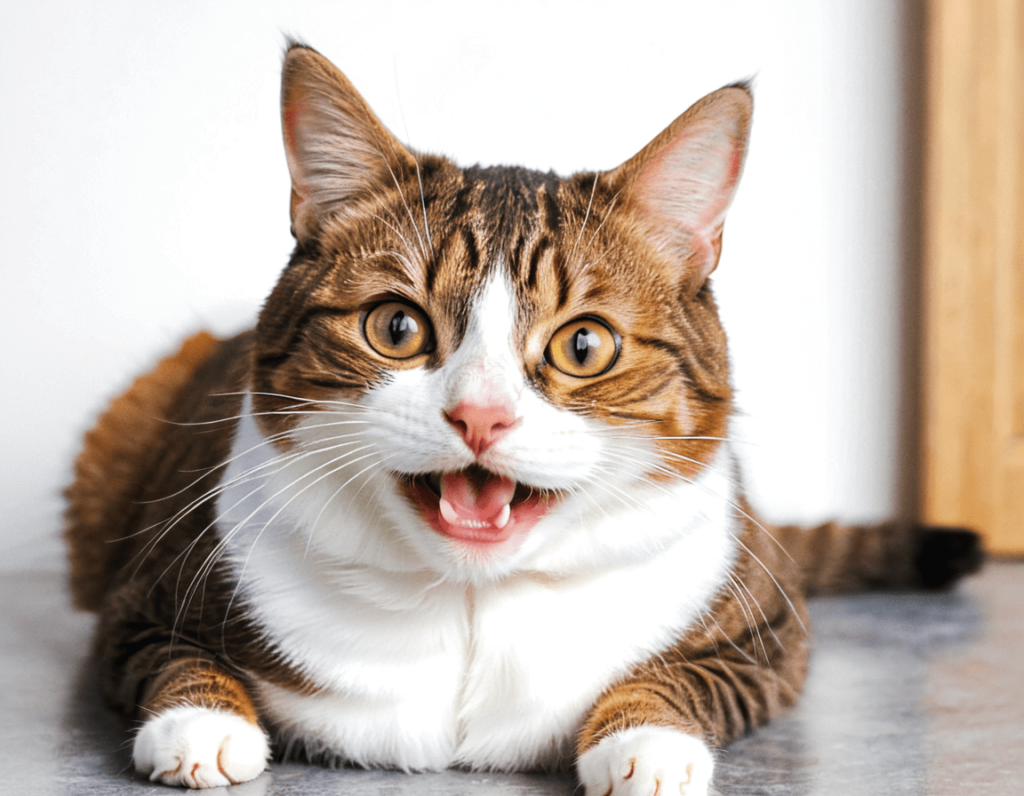
Conclusion: A Healthy Smile Equals a Happy Cat
Taking care of your cat’s teeth is more than just about avoiding bad breath. It’s about keeping your cat healthy, happy, and pain-free. While it may take a bit of effort and a whole lot of treats (who can resist giving your kitty a snack? ), regular dental care will pay off in the long run with a happier, healthier cat.
And hey, if your cat ever flashes you a grin after their dental routine, you’ll know you’re doing it right. After all, who could resist a smile that’s as adorable as a cat’s?
Final Thoughts: Keep Your Cat Smiling
Dental health isn’t just about making your cat’s smile Instagram-worthy (though, let’s face it, that’s a pretty cute bonus). Keeping your cat’s teeth clean and healthy can prevent serious health issues down the line and contribute to their overall happiness. Whether you’re brushing their teeth, offering dental treats, or just making sure they get regular checkups, you’re taking proactive steps to ensure your feline friend enjoys a long, healthy life.
And remember, your cat’s dental care doesn’t have to be a battle. If your cat is less than thrilled with the idea of teeth brushing, start slow and be patient. Maybe throw in some extra snuggles and treats to sweeten the deal. Soon, your kitty will be flashing those pearly whites, and you’ll be proud of the positive impact you’ve made on their health.
So, let’s raise a paw (and maybe a toothbrush) for healthy cat teeth! 🐾🪥
Final Thoughts: Keep Your Cat Smiling
1. Why is dental care important for cats?
Answer: Dental care is essential because poor oral hygiene can lead to serious health issues in cats, including gum disease, tooth decay, and bad breath. Infections from the mouth can spread to other parts of the body, affecting vital organs like the heart and kidneys. Regular dental care can help prevent these problems and keep your cat healthy.
2. How often should I brush my cat's teeth?
Answer: Ideally, you should brush your cat’s teeth 3-4 times a week. If daily brushing is possible, even better! However, it’s important to make sure your cat is comfortable with the process, so start slow and build up to more frequent brushing if needed.
3. Can I use human toothpaste on my cat?
Answer: No! Human toothpaste contains fluoride, which is toxic to cats. Always use cat-safe toothpaste that is designed for their digestive system. These toothpastes come in flavors your cat will enjoy, like chicken or fish, to make brushing a little more pleasant.
4. How do I brush my cat's teeth if they hate it?
Answer: It’s normal for cats to be a bit wary of brushing at first. Start by gently rubbing their gums with your finger, then gradually introduce a toothbrush. If your cat resists, try offering them a tasty dental treat afterward, or use a dental wipe or spray as an alternative.
5. What are dental treats, and do they really work?
Answer: Dental treats are specially designed snacks that help clean your cat’s teeth while they chew. They often have a textured surface that scrapes off plaque and tartar, promoting better oral health. While dental treats aren’t a replacement for brushing, they’re a helpful addition to your cat’s dental care routine.
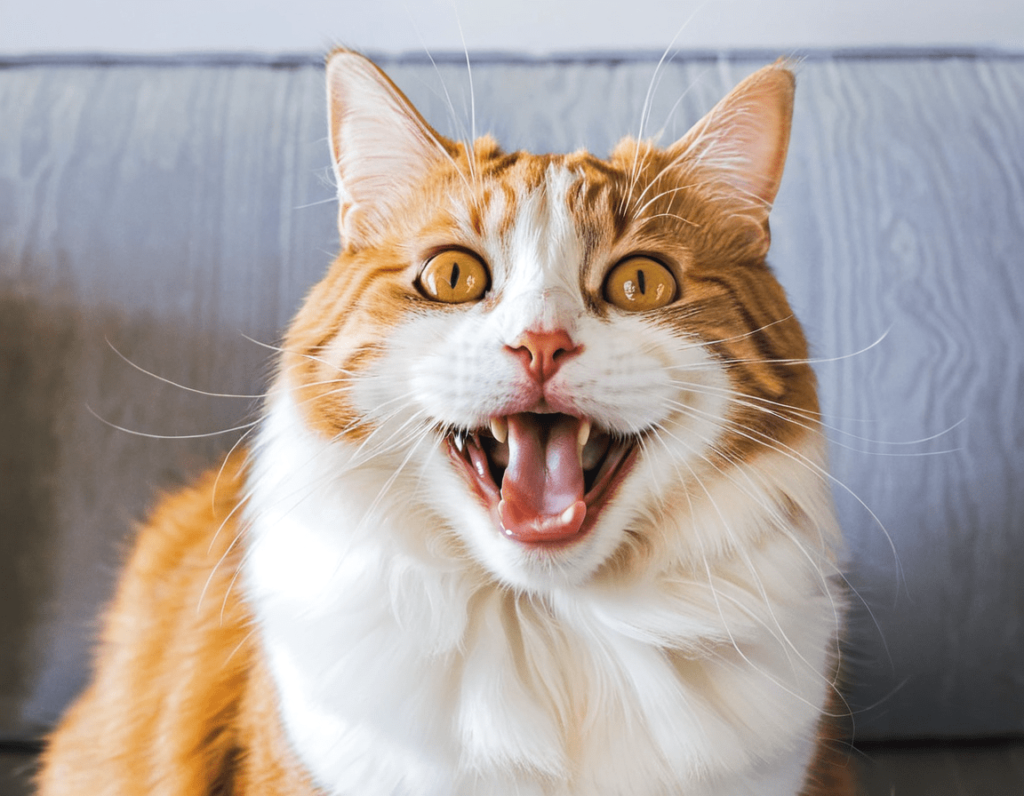
6. Can my cat develop gum disease?
Answer: Yes, cats can develop periodontal disease, which is the most common dental issue. It starts with plaque buildup and can progress to gum inflammation and tooth loss if untreated. Regular brushing and vet checkups are the best ways to prevent gum disease.
7. Are there specific foods that help with cat dental health?
Answer: Yes, there are dental diets formulated to reduce plaque and tartar buildup. Some cat food brands offer kibble that helps clean teeth while your cat chews. However, wet food is easier on your cat’s teeth, so it’s essential to balance their diet and include regular dental care.
8. How do I know if my cat has dental problems?
Answer: Signs of dental issues in cats include bad breath, difficulty eating, excessive drooling, or red or swollen gums. If you notice any of these symptoms, it’s best to schedule a vet visit for a professional examination.
9. Should I take my cat for professional dental cleanings?
Answer: Yes, professional cleanings are important, especially for cats that don’t tolerate brushing. Your vet can perform a thorough cleaning under anesthesia, removing plaque and tartar buildup that home care might miss. Regular professional cleanings, typically once a year, are essential for maintaining optimal dental health.
10. Can senior cats have dental issues?
Answer: Yes, senior cats are more prone to tooth resorption and other dental issues as they age. Regular vet visits and continued home care can help detect and manage these problems before they get serious.
11. What happens if I don’t take care of my cat’s teeth?
Answer: Neglecting your cat’s dental care can lead to painful tooth infections, tooth loss, and potentially heart disease or other health issues. Early intervention can prevent serious problems and improve your cat’s overall quality of life.
12. Can I use dental water additives for my cat?
Answer : Yes! Dental water additives are a great way to help freshen your cat’s breath and reduce plaque buildup. They’re easy to use—just add the recommended amount to your cat’s water bowl. While they don’t replace brushing, they can be a helpful supplement to your cat’s dental care routine.
13. Are there any risks with dental cleaning for cats?
Answer : Dental cleaning is generally very safe, but it does involve anesthesia, which carries a small amount of risk. Your vet will assess your cat’s overall health before recommending anesthesia, and the benefits of a professional cleaning usually outweigh the risks.
14. What are the most common dental problems in cats?
Answer : The most common dental issues in cats include periodontal disease, tooth resorption, and oral tumors. If you notice your cat having trouble eating, drooling, or showing signs of pain, a vet visit is in order.
15. Can dental problems affect my cat's behaviour?
Answer: Absolutely! Cats with dental issues may show signs of discomfort, such as irritability or changes in eating habits. They may also hide or act out of character because they’re in pain. If you notice a change in your cat’s behavior, it could be linked to dental problems.
Taking care of your cat’s dental health is essential for their overall well-being. Regular brushing, dental treats, professional cleanings, and being mindful of any changes in behavior can help prevent problems and ensure your cat’s smile stays as cute as ever!

